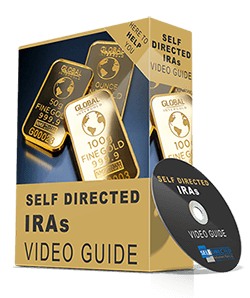If you are a permanent life insurance policyholder, you can take advantage of the infinite banking concept. But what exactly is it, and is it best for you?
What is Infinite Banking?
Infinite banking is a financial strategy that utilizes a permanent life insurance policy, typically whole life insurance, as a personal line of credit. This means you can borrow funds from the policy’s cash value, offering an alternative to traditional loan methods for funding.
Whole-life policies are meant to earn cash value over some time at a guaranteed rate. Once you have gathered enough funds, you can borrow against your life insurance policy.
What is the Infinite Banking Concept?
The infinite banking concept advocates for individuals to augment their cash value by making additional contributions, thereby accelerating its growth. This approach suggests borrowing against this accumulated value instead of resorting to conventional lenders or depleting savings for significant expenses. Advocates promote it as a strategy to reduce interest payments to financial institutions compared to conventional loan arrangements.
How Does Infinite Banking Work?
Infinite banking is a strategy used along with other whole-life policies with cash value that lasts a lifetime.
The cash value within whole life insurance policies grows at a guaranteed rate of return determined by the insurer, with the potential for additional dividends in participating policies. Once the cash value reaches a sufficient level, policyholders can request a loan against it from their life insurance company.
Unlike conventional loans, cash-value loans do not require the same qualification process. However, they do accrue interest and are secured by the life insurance policy itself, risking coverage loss if borrowing exceeds the policy’s cash value. Repayment of cash-value loans is not obligatory, but neglecting repayment can impact the benefits received by beneficiaries upon the policyholder’s death. While there are benefits to cash value life insurance, such as the potential for infinite banking, it also carries risks, particularly if the cash value is not diligently managed.
Pros of Infinite Banking
As infinite banking is a convenient option for people, this strategy has several advantages. Let’s take a look at the list of pros:
- Tax Benefits: The value held in a permanent life insurance policy typically experiences tax-free growth, and loans taken against this value do not incur taxation. Additionally, the payouts from life insurance policies usually remain untaxed.
- Guaranteed Returns: In contrast to some other permanent insurance options, the accumulation of cash value in whole-life policies is not dependent on market fluctuations; rather, it is determined by a predetermined rate established by the insurer. Additionally, if your policy is held with a mutual life insurance company, you may receive yearly dividends reflecting the company’s financial success.
- Easy Loans: Traditional lenders typically require applicants to go through an application process, undergo credit evaluations, and adhere to predetermined repayment schedules for personal loans.Conversely, whole-life policies allow policyholders to borrow against their accumulated cash value without explaining the purpose or meeting credit score criteria. This borrowing privilege stems from the fact that policyholders essentially borrow from their own funds. Such flexibility in accessing funds can enhance cash flow and enable policyholders to address unforeseen financial needs such as medical expenses.
- Flexible Repayments: You aren’t obligated to repay a cash value loan by a set deadline or even repay it at all if you’re not worried about keeping your life insurance active. This flexibility could be attractive if you prefer to repay the loan gradually. Remember, though, that interest will accrue on the loan, and this interest isn’t eligible for tax deductions.
Cons of Infinite Banking
While there are advantages to the infinite banking strategy, it also is a complex method to manage your wealth. Let’s peek at the list of cons of infinite banking:
- Expensive Whole Life Insurance: Whole life insurance tends to incur a significant expense due to its incorporation of a cash value element and its characteristic feature of providing coverage for the entirety of one’s life. On the other hand, term life insurance, which offers coverage for a predetermined duration such as 10, 15, or 20 years and disburses benefits in case of demise before the policy term elapses, generally meets the needs of most individuals at a more affordable rate.
- Lengthy Term: Given the lengthy period required for cash value accumulation, it usually takes ten years or more to accrue sufficient funds for loan procurement. Unless there is a substantial availability of discretionary finances to augment the policy’s cash value, infinite banking does not offer a rapid route to wealth accumulation. The fundamental intent of whole life insurance is to provide a death benefit to beneficiaries rather than serving as an investment vehicle.
- Costly Policy Funding: To effectively utilize infinite banking, it’s essential to invest a substantial amount into your policy’s cash value. This involves overfunding your policy, which means paying more than the necessary premiums. Typically, individuals allocate approximately 10% of their monthly income to the policy, which might exceed your budget constraints.
- Complicated Concept: Utilizing life insurance for investment purposes and as a means of accessing funds requires a nuanced approach. To guarantee the continuity of your life insurance coverage, it is essential to exercise discipline and vigilance in tracking any changes in your policy’s cash value.Consulting with a life insurance advisor is crucial to assess whether the concept of infinite banking aligns with your objectives, requirements, and financial constraints.
How to Get Started with Infinite Banking
Infinite banking is an interesting strategy and might appeal to a lot of individuals because of the advantages it provides. If you have read through the infinite banking pros and cons and think that this strategy is something that will help you in the long run, here is how you can get started with it:
- Start Young with Lower Premiums: When you are young, the premiums for insurance are comparatively lower than when you get older. Since, in an infinite banking strategy, your premium is locked in for the entire term of your whole life insurance policy, it’s preferred that you start young.
- Go for a Reputable Insurance Advisor: Life insurance is not a joke. You are trusting someone with your wealth, hoping for maximum results. This is why it’s always essential to consult a reputable insurance advisor or a life insurance company that can best guide you according to your needs and requirements.
- Pick a Non-Direct Insurance Policy: Whole life insurance policies provide dividends based on your investment. However, if you decide to borrow against their worth, the insurance company may only distribute dividends on the remaining amount in the account. Conversely, with a non-direct recognition policy, dividends are disbursed based on the entire cash value, irrespective of any borrowing against it.
- Get a Cash Value Rider: Most insurance policies have the concept that the life insurance company can absorb the cash value after your death. So this means that your beneficiary can only receive the death benefit. In order to avoid losing all the cash value you have accumulated over your life, you can add a cash value rider so that your beneficiary can get both the face value and the cash value.
- Get Paid-Up Addition Rider: To borrow against a significant amount of cash value, you will need to pay monthly premiums for more than a decade. However, adding a paid-up addition rider to your insurance policy can speed up the process by allowing you to pay more to your cash value for faster growth.
- Request Funding: Once you’re prepared to take out a loan, the funds will be sourced from the cash value of your policy, serving as security. Simply contact your insurance provider and make a funding request. Unlike conventional loans, there’s no requirement to justify the purpose of the funds, and it won’t impact your credit score. Furthermore, since the loan isn’t classified as income by the IRS, it remains tax-exempt.
- Repay Yourself: You will be charged an interest rate on your loan, but it will likely be lower than the interest rate charged by a bank for a loan. While there are no obligatory monthly payments, repaying the loan against the cash value is expected. You have the flexibility to repay the loan over any duration you choose; however, it’s important to note that borrowing will diminish the death benefit until the loan is fully repaid.
What are Your Alternatives to Infinite Banking?
While infinite banking is an attractive strategy, it is not suited for everyone. If you are still not sure whether this is for you, you can explore other options, such as:
- Traditional Banks: There are several banks that can provide you with a heap of variety regarding loans and other savings options. Contact a financial advisor to best match your requirements with the appropriate schemes.
- Credit Unions: These non-profit financial institutions reinvest all of their earnings into their products. Their savings rates and loans are comparatively more favorable than traditional banks. So, you can consider these credit unions as a credible option.
- High-Yielding Savings Account: Traditional savings accounts might not offer the best interest rate, but today, several high-yield savings accounts offer high and competitive interest rates.
Contact an Advisor
Saving and investing for retirement is something to pre-plan to reap its benefits when you reach retirement age. But with all the options available in today’s financial market, it can become tricky and confusing to choose the one that best suits your requirements and needs.
Need Help with Infinite Banking?
At SD Retirement Plans, we give you the best and most trusted advice that can help you gain control over your retirement wealth. Contact us today!
FAQs:
What is the minimum amount I need to start infinite banking?
This depends on your cash flow and liquidity needs. However, starting early will allow your policy to accumulate more cash value over time, which you can subsequently utilize. A good minimum amount to aim for is $5,000. To determine your monthly premium, consider how much money you will need and how many years you will need it.
What is the role of taxes in infinite banking?
When utilizing life insurance, individuals can benefit from growth that is deferred from taxation, access funds without tax implications through policy loans, and provide beneficiaries with a death benefit typically exempt from taxes.
Can I use term life insurance for infinite banking?
No, term life insurance, including no-exam life insurance policies, does not provide cash value growth, so you cannot use it for infinite banking.
Can I still borrow against my policy if I have bad credit?
Yes! One of the key advantages of Infinite Banking is that you can borrow against your policy’s cash value.
Do I need to qualify for a life insurance loan?
No, you don’t need to qualify for a life insurance loan. The insurance company will verify your loanable value and process your request if it is within that limit.
Is infinite banking a scam?
No, the infinite banking concept is a legitimate strategy, but some agents might misrepresent its benefits.
Got More Questions?

My goal is to assist clients/investors in their quest for financial freedom and creating generational wealth through one on one consultation and an abundance of online tools to educate. For the past 5 years I have been a private pension plan consultant with Self Directed Retirement Plans working directly with my partner Rick Pendykoski (owner).




